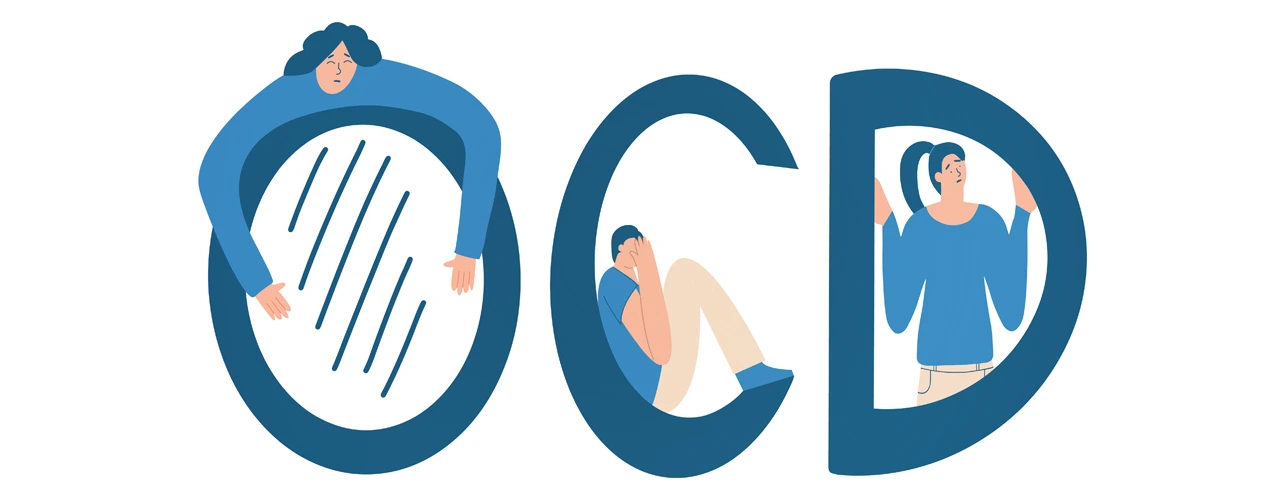The link between ADHD and eating disorders is more common—and more complex—than many people realize. Attention-Deficit/Hyperactivity Disorder (ADHD) can affect more than just focus and impulsivity; it can also play a major role in eating patterns and behaviors.
In this article, we’ll explore the connection between ADHD and binge eating, the types of eating disorders that commonly co-occur with ADHD, and what treatment options are available to help those affected.
What Is Disordered Eating in ADHD?
Disordered eating refers to a range of irregular eating habits that may or may not meet the criteria for a clinical eating disorder. In people with ADHD, disordered eating is often driven by:
- Impulsivity – acting without thinking can lead to frequent overeating or eating without hunger.
- Emotional dysregulation – using food to cope with feelings of boredom, stress, or anxiety.
- Executive dysfunction – difficulty planning meals, sticking to regular eating schedules, or preparing nutritious food.
- Hyperfocus – becoming so absorbed in an activity that meals are skipped, leading to excessive hunger and bingeing later.
Because of these challenges, people with ADHD are at higher risk of developing patterns like skipping meals, late-night snacking, or cycles of restriction and overindulgence.
ADHD and Eating Disorder Types
Studies have shown a significant overlap between ADHD and eating disorders, particularly the following:
1. Binge Eating Disorder (BED)
This is the most common eating disorder among people with ADHD.
ADHD and binge eating are often connected through impulsive behavior, poor interoception (difficulty sensing hunger/fullness), and emotional eating. Many people report feeling out of control during binges and experience guilt or shame afterward.
2. Bulimia Nervosa
Bulimia often involves cycles of bingeing followed by purging (vomiting, excessive exercise, or laxative use). The impulsive and emotional elements of bulimia can overlap significantly with ADHD symptoms, especially in adolescents and young adults.
3. Anorexia Nervosa (less common)
While less common, anorexia can co-occur with ADHD, particularly the inattentive subtype. The perfectionistic tendencies that sometimes accompany ADHD can contribute to restrictive eating patterns and body image struggles.
4. Avoidant/Restrictive Food Intake Disorder (ARFID)
Some individuals with ADHD may struggle with sensory sensitivities or rigid food preferences, leading to highly selective eating that may interfere with health or growth.
Treatment Options for ADHD and Eating Disorders
Treating ADHD and eating disorders together requires an integrated approach. Here are several effective strategies:
1. Medication Management
ADHD medications like stimulants can help regulate attention and impulsivity, but they may also suppress appetite. Working with a healthcare provider is essential to balance ADHD symptom relief without worsening disordered eating patterns.
2. Cognitive Behavioral Therapy (CBT)
CBT is often used to treat both ADHD and eating disorders. It helps individuals recognize negative thought patterns, develop healthy coping strategies, and improve emotional regulation.
3. Nutritional Counseling
A registered dietitian—especially one with experience in ADHD and disordered eating—can help create meal plans, reduce anxiety around food, and establish consistent eating habits.
4. Dialectical Behavior Therapy (DBT)
DBT is especially helpful when emotional dysregulation is a driving factor. It focuses on skills like mindfulness, distress tolerance, and emotional control.
5. ADHD Coaching and Executive Function Support
Working with an ADHD coach or therapist can help individuals build routines around food, grocery shopping, meal prep, and self-care—areas often disrupted by ADHD.
Final Thoughts
Understanding the relationship between ADHD and eating disorders is a crucial step toward healing. If you or someone you care about is struggling with ADHD and binge eating, bulimia, or other disordered eating behaviors, know that support is available.
Related Blog: Understanding Binge Eating Disorder, Symptoms and Treatment Options
Frequently asked questions
Can ADHD really cause eating disorders?
Yes, ADHD can contribute to disordered eating due to symptoms like impulsivity, emotional dysregulation, executive dysfunction, and hyperfocus. These traits can influence when, how, and why a person eats, increasing the risk for conditions like binge eating disorder or bulimia.
What is the most common eating disorder associated with ADHD?
Binge Eating Disorder (BED) is the most commonly reported eating disorder among people with ADHD. It is often linked to impulsive behavior, poor awareness of hunger/fullness cues, and using food to manage emotions.
Why do people with ADHD struggle with food routines?
Executive dysfunction in ADHD can make it difficult to plan meals, stick to schedules, or prepare balanced meals. People may forget to eat, skip meals, or eat impulsively, which can lead to irregular and unhealthy eating habits.
How is therapy helpful for managing ADHD and eating disorders?
Therapies like Cognitive Behavioral Therapy (CBT) and Dialectical Behavior Therapy (DBT) can help individuals recognize harmful patterns, manage emotions, and develop healthy coping strategies. These approaches are often tailored to address both ADHD and disordered eating behaviors simultaneously.











































